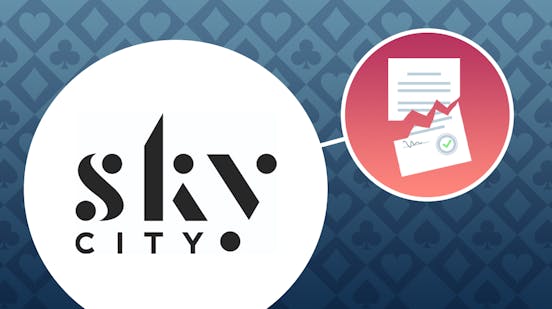Salary of the All Blacks


Some of the best professional rugby players worldwide are New Zealand-born and play for the All Blacks. This has fans all over the world wondering what the average salary for an All Blacks player is. Every player signs an individual contract with details about their salary, which is completely private.
However, news has gotten out about this salary. Today, we will talk about how much money these professional rugby players earn. We’ll also break down the average salary of rugby players in NZ. Read on to find out more.
What Is The Average All Blacks Salary?
When it comes to New Zealand Rugby, it doesn’t get better than the All Blacks. This is the team that every rugby player in New Zealand strives to get to. So, what do the players earn while playing for the All Blacks?
The average All Blacks player earns $1 million per year. However, there’s more to how these players earn money than an annual salary. All Blacks team members will earn money every week they are with the team. So, players only with the team for a season (or less time) will not earn an annual salary of $1 million.
Here’s a breakdown of the average All Blacks salary.
They get paid approximately $7,500 for every week they’re with the team, regardless of whether they play. If a player is with the team for a season tour, they will make an average of $37,500.
Each player's wages will be determined in a contract with New Zealand Rugby. This guarantees their wages, even if they rarely see the field after training. A drafted player could earn a salary for simply being there, even if they don’t get the opportunity to play with the team.
What Is The Average Salary Of an NZ Rugby Player?
New Zealand Rugby is responsible for the wages of All Blacks players and Super Rugby. As mentioned above, each player's salary will be negotiated in their private contract. This will be between the player, their agent, and the league.
However, it is known that NZR pays rugby players between $75,000 and $195,000. They will also have players on contract to fill in if someone gets injured. These players can be drafted for a minimum of $50,000 annually.
How Does This Compare To The Rest of the World?
Since the best of the best play for the All Blacks, you might be under the impression that the All Blacks salary is the highest in the world. That’s not exactly true, though. The basic wage of England players is much higher. When new players start, their wages are around £40,000, equivalent to NZD 75,000. But, once they get more experience on the team, the average salary is £120,000, equivalent to $229,000 NZD.
Wages are even better for French players. The average salary of a French rugby player is $458,000 NZD.
The average Australia rugby player starts their contract at AUD 44,000 per year. However, experienced players earn roughly $100,000 AUD annually, and the top players earn over $1 million annually. Contracts fluctuate quite regularly after the financial implications of COVID-19.
Are you wondering which nation pays rugby players the least? North America pays the lowest professional rugby wages. USA Rugby pays players a low amount compared to other countries worldwide. Players will be offered a contract initially with a base pay of $18,000 (USD). Seasoned players earn an average salary between $40,000 and $60,000 (USD). The wages are even lower for Canadian players, who earn anywhere from $10,000 to $40,000.
All-Black Salary – The Highest Paid Kiwi Player of All Time
Charles Piutau may no longer play for the All Blacks, but he remains the highest-paid All Black of all time. Between 2013 and 2016, he reportedly earned $2.05 million per season.
New Zealand Club Rugby Wages
New Zealand Club rugby wages fluctuate throughout a player’s career. Players new to the team will often start at a minimum base pay. Some of these players may only be on the team as backups for injuries, so there’s a chance they may not get to play. However, they will still earn their salary by being available to the team. As players gain more experience with the league, they can negotiate private endorsements and higher salaries.
Super League Salary
The Super League will hire players for a minimum of $50,000 NZD, but they have the potential to earn more. The average Super League player earns between $75,000 and $195,000. Typically, players start off with a negotiated base pay. They will earn more as they prove their value to the team. However, seasoned players are likely to earn a lower salary toward the end of their careers.
Mitre Cup Team Salary
The Mitre Cup is a domestic competition in New Zealand that has taken place annually since 2006. During these events, the top 14 rugby unions in the nation compete. The salaries negotiated for the players range from $18,000 to $55,000.
NZ Rugby League Salary
The main difference in wages between Rugby League and Rugby Union Players is how they’re paid. Rugby Union Players earn per match they are with the team. Rugby League members will have a contract to pay for the season or tournament they compete in.
At first glance, the contracts may look like Rugby League players have a better deal than Rugby Union Players. However, Rugby Union Players have the potential to earn more, and this comes with bonuses that might apply to their contracts. Many players earn $100,000 to $1 million annually, while those who earn by season may only get $50,000 to $70,000.
History of Professional Rugby in New Zealand
Rugby is the most popular sport in New Zealand and is a big part of the culture. The history of this competitive sport goes back to 1845. At this point, the game’s laws were determined by pupils at Rugby School. However, the sport wasn’t introduced to New Zealand until 1851 by Charles John Monro, a student from England.
In 1870, Munro returned to England and founded the Nelson Football Rugby Club. It wasn’t until 1884 that New Zealand began competing in international rugby. By 1892, the New Zealand Rugby Union had formed.
While players were competing professionally, they weren’t getting regularly paid for it. It wasn’t until over 100 years later, in 1995, that payment restrictions were removed. This changed the sport on a professional level. From then on, players at the highest level were being signed on to compete professionally.
Rugby World Cup 2023
Speaking of New Zealand Rugby, the All-Blacks will seek to conquer the world again when the Rugby World Cup comes around. Nevertheless, it will be tough for the Kiwis to wrestle their world title back from the Springboks.
The All-Blacks won back-to-back World Cups in 2011 and 2015, but could only manage a 3rd place finish in Japan in 2019. They will be looking to place their hands on the Webb Ellis Trophy for a fourth time in the competition’s history. However, the standard of world rugby has never been greater. France is the current favourite to win the tournament on home soil, with bookies backing them at 11/4. Most bookmakers have the Kiwis as 2nd favourite at 3/1, closely followed by Ireland and South Africa.
Fancy a wager? Head to our sports betting page to check out the latest odds on the Rugby World Cup.
You can also check out the full RWC 2023 schedule on our dedicated fixtures page.
Resources:
Joe.co.uk
NZ Herald
NZ Rugby
The Sydney Morning Herald
Wikipedia – Charles Piutau
Comments
Comment Submitted for Review
Just now
Your comment has been submitted for moderator review. It will be posted shortly once approved
Latest News

Lincoln is an expert in sports betting. With his skill and passion for trying our new brands in the iGaming industry, he frequently reviews sports betting sites and writes news about sports betting. Being a former sports trader, there’s not much he doesn’t know when it comes to sports betting.
Read more about the author





